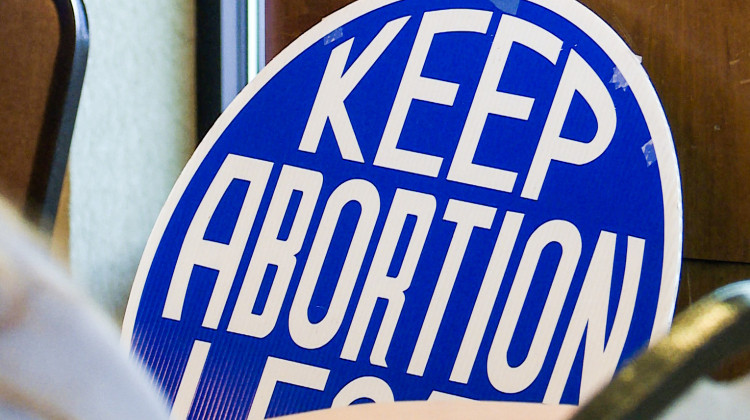From ages 7 to 18, Katherine Peraza was a ward of the state, living with a foster family in Indianapolis for most of that time. At 19, she became pregnant. When she went to the doctor, she was hit with a surprise.
“All of a sudden when I got pregnant, I found out I didn’t have [health] coverage any more,” she recalls.
An estimated 500 youth in Indiana age out of foster care system every year and when they do, they will lose health insurance if they don’t re-enroll.
But a new law, signed by Gov. Eric Holcomb last week aims to close that health care gap. It requires the Department of Child Services and the Medicaid office to make sure youth aging out of the system are enrolled in Medicaid until 26,
Peraza was born in El Salvador but has residency status.
“When I became a resident I had full coverage, dental and vision and it was all covered,” Peraza says.
But she didn’t realize when she turned 18 and aged out of the foster care system, that she would lose insurance if she didn’t re-enroll.
Like Peraza, many learn this when they are pregnant. Seventy-one percent of female former foster care youth have children before the age of 21.
Young people who age out of foster care have had problems connecting with health insurance for years, despite a provision under the Affordable Care Act that establishes coverage for people between the ages of 18-26. Without a parent to help them, many find the process of signing up for health insurance confusing.
Nearly 60 percent of former foster kids in Indiana don’t get on Medicaid, according to research from Indiana Connected by 25, a nonprofit that helps young people in Indiana transition out of foster care and into the community.
There are more than 22,000 former foster youth in Indiana. Many have health conditions and need care. Indiana Connected by 25 CEO Brent Kent says many suffer from post-traumatic stress disorder, and chronic stress can leads to chronic illness.
“They are racking up a needless medical debt,” Kent says. “It’s affecting their ability to keep a job, find stable housing, finish college, and for this population it’s particularly important.”
The new legislation connecting youth with Medicaid coverage goes into effect July 1.
Todd Lloyd is a senior associate with the Jim Casey Youth Opportunities Initiative, and he’s working on this issue on a national level. He says Indiana is ahead of the curve.
“There are very few states that have made such significant strides,” Lloyd says.
Lloyd says continued coverage for young adults is one of the most popular parts of the Affordable Care Act.
“[There’s been] widespread appeal among families that their children are able to be covered under their parents’ coverage until age 26, but perhaps the greatest challenge these young people are facing is that they don’t have family to rely on,” Lloyd says.
Peraza got help from a social worker who helped her get on Medicaid, find a doctor and set up a $5 co-pay during her prenatal care.
“That was really good, because I can’t afford all that stuff,” Peraza says.
Despite an emergency C-section, Peraza and her baby are healthy.
And for now, her coverage is in place. That’s a big relief but she still finds health insurance confusing.
“I’m positive, I’m OK, I’m calm because when I talked to the lady recently, she had said that I do have insurance, but I would like to understand it,” Peraza says.
This story was produced in partnership with Side Effects Public Media and Indiana Public Broadcasting.
 DONATE
DONATE












 Support WFYI. We can't do it without you.
Support WFYI. We can't do it without you.